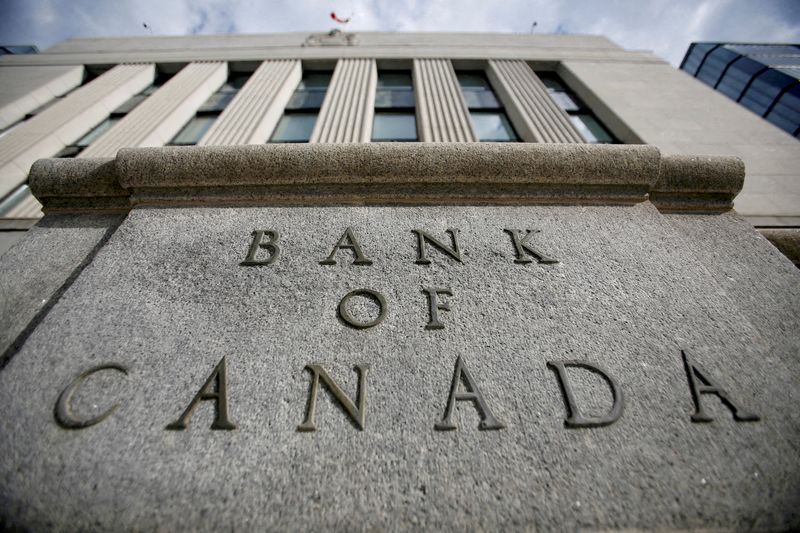By Julie Gordon and Fergal Smith
OTTAWA – Canada’s central bank has signaled plans to race ahead with a series of oversized hikes to curb inflation, upping the risk of plunging the economy into a recession, say economists, though worth it if it keeps rapid price rises from becoming entrenched.
The Bank of Canada last week raised its policy interest rate to 1.5% from 1.0%, its second consecutive 50-basis-point hike, and said it was ready to act “more forcefully” if needed to fend off “galloping inflation,” already at a 31-year high.
That could mean more moves before pausing, larger than 50-bp increases or an end rate somewhere above neutral – the 2%-3% range where interest rates neither stimulate nor weigh on growth, Deputy Governor Paul Beaudry said.
A strong, front-loaded assault from the Bank of Canada will slow domestic demand and should help keep rising inflation from turning into a price spiral, economists said.
But it is a delicate balance and any slip could seriously hobble the economy just as key service sectors, like travel, are rebounding. In a worst-case scenario, Canada could be plunged into a recession, they added.
“To my mind, the recession risks are high because we are looking at such a strong monetary policy response being required to take inflation back to target,” said Andrew Kelvin, chief Canada strategist at TD Securities.
“They need to act relatively quickly, which I think makes it much more difficult to gauge the impacts of rate hikes on the economy.”
Canada’s flat yield curve is an indication that investors are betting on an economic slowdown, with the gap between 2- and 10-year bond yields at 14 basis points on Wednesday, the narrowest spread among Group of Seven countries.
The housing market, a key driver of Canada’s economy, has cooled sharply from February’s peak, as rate hikes cut into buying power. And the country’s export volumes are down 4.9% so far this year, a decline to date masked by hot commodity prices.
Still, inflation is running at 6.8% and set to rise further, Canada’s jobless rate is at a record low and businesses report more demand than they have the capacity to meet, bolstering the case for a forceful response.
“Do a little bit too little and you allow inflation to keep going,” Beaudry said last week. “If you do too much, you might kind of bring the economy into a recession. So we’re trying to aim at that in-between.”
Money markets are betting the Bank of Canada will raise its policy rate to 3.25% by the end of this year, the highest level since 2008 and three full percentage points above January’s 0.25%. Interest rate peaked at 1.75% in the 2017/18 tightening cycle.
That rapid pace could shock Canada’s economy, which has the highest level of household debt in the G7. Homes sales plunged 12.6% in April from March, with the full price impact of rapidly cooling demand still to come. But the Bank may be willing to risk a hard landing if it keeps consumer expectations in hand, economists said.
“The Bank of Canada’s recent communications suggest that it will be unfazed by the second consecutive double-digit drop in home sales in May,” said Stephen Brown, senior Canada economist at Capital Economics.
“This … leaves us concerned that it will take a more aggressive approach to policy tightening than is ultimately required, driving house prices sharply lower and risking a major recession.”
When asked directly if the bank would be willing to engineer a recession, Beaudry told reporters it would ultimately do what was needed.
“The bottom line is we will get inflation back to 2%. We’ll do what’s necessary to get there,” he said.
(Reporting by Julie Gordon in Ottawa and Fergal Smith in Toronto; Editing by Marguerita Choy)
